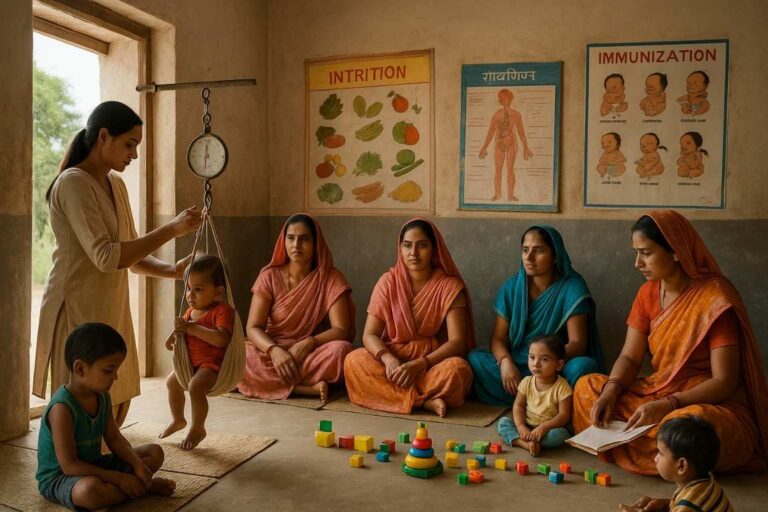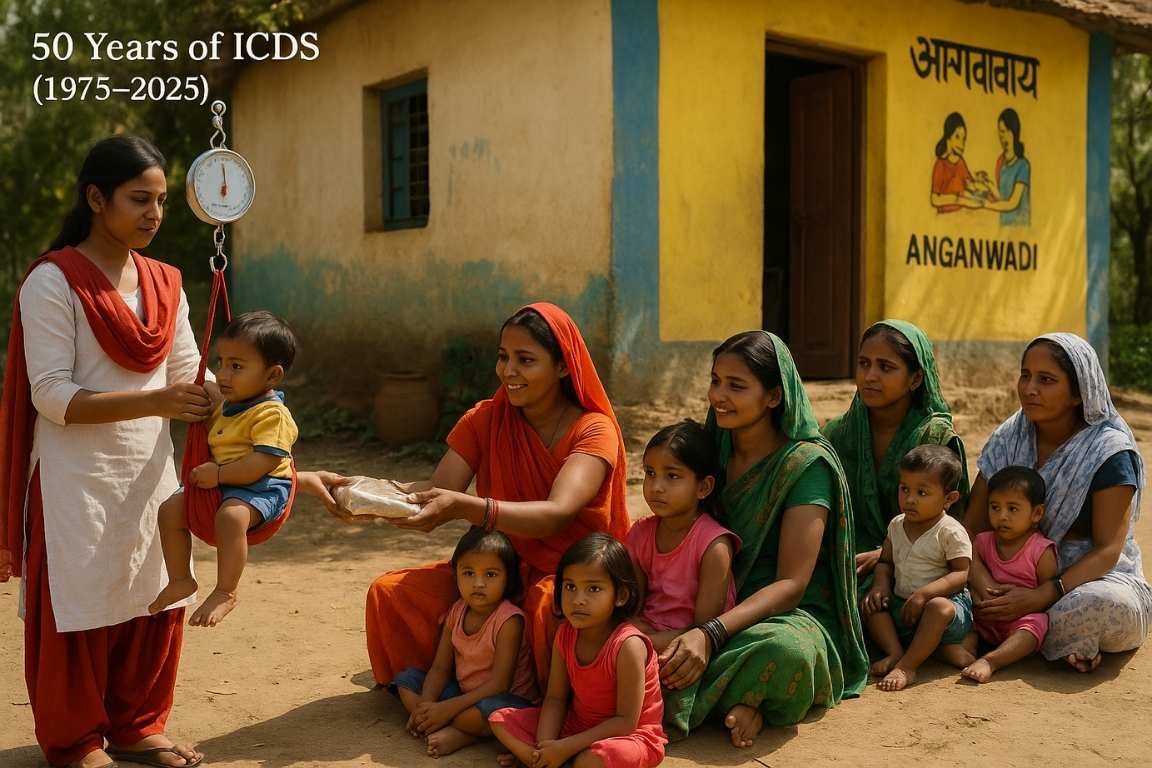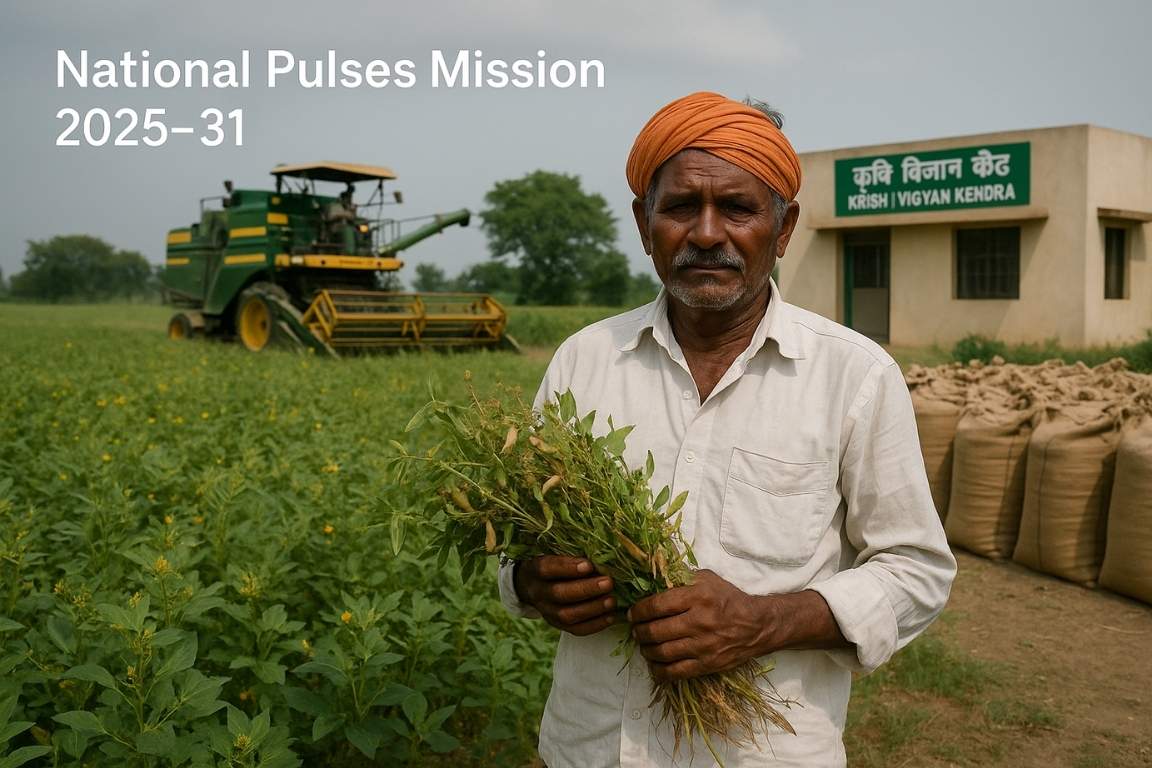The Integrated Child Development Services (ICDS), India’s flagship early childhood care programme launched on 2 October 1975, has completed 50 years in 2025.
About the ICDS Scheme
- Launch: 2 October 1975 by Prime Minister Indira Gandhi
- Nodal Ministry: Ministry of Women and Child Development (MoWCD)
- Type: Centrally Sponsored Scheme
- Coverage: Children aged 0–6 years, pregnant women, lactating mothers, and adolescent girls (through extensions)
- Objective: To ensure holistic development of young children and improve nutrition, health, and education outcomes.

Main Objectives
- Improve nutritional and health status of children (0–6 years)
- Provide a foundation for physical, mental, and social development
- Reduce infant and child mortality, malnutrition, and school dropouts
- Offer non-formal pre-school education
- Create awareness on maternal health and nutrition
Umbrella ICDS Scheme (2016–17 onwards)
- The scheme was restructured and renamed as Umbrella ICDS to integrate child nutrition, adolescent girls’ support, and child protection.
- Promotes convergence through Anganwadi Centres (AWCs) as one-stop service hubs for nutrition, health, and early learning.
Funding Pattern
- General States: 60:40 (Centre: State)
- Supplementary Nutrition: 50:50
- Northeast & Himalayan States: 90:10
- UTs (without legislature): 100% Central support
Anganwadi Services
- Six core services:
- Supplementary Nutrition
- Pre-school Non-formal Education
- Health Check-ups
- Immunization
- Referral Services
- Health & Nutrition Education
- Nutrition support via Take-Home Rations (THR) and Hot Cooked Meals
Pradhan Mantri Matru Vandana Yojana (PMMVY)
- Conditional cash transfer of ₹5,000 to pregnant and lactating women
- Ensures income support and better nutrition, delivered through DBT.
National Creche Scheme
- Day-care facilities for working mothers’ children (6 months–6 years)
- Provides nutrition, health care, and early learning support.
Child Protection Services (CPS)
- Ensures care, rehabilitation, and safety of children in distress.
- Operates helplines, child care institutions, and adoption services.
POSHAN Abhiyaan (National Nutrition Mission)
- Started in 2018 to reduce stunting, anaemia, and low birth weight.
- Uses Poshan Tracker for real-time monitoring.
- Promotes community participation through Poshan Maah and Poshan Pakhwada.
Significance
- Has improved maternal and child health outcomes.
- Strengthens nutrition security and early education.
- Serves as a convergence platform for multiple welfare programmes.
Conclusion
The ICDS Scheme, now 50 years old, continues to be the cornerstone of India’s child development and nutrition strategy. With evolving components like POSHAN Abhiyaan and digital monitoring, it aims to build a healthier, better-nourished generation and achieve Sustainable Development Goals (SDGs) on hunger and health.






Excellent post! The information you shared is practical and easy to apply in daily life. I appreciate the positive tone and the emphasis on healthy habits instead of extreme methods. Looking forward to reading more of your content.